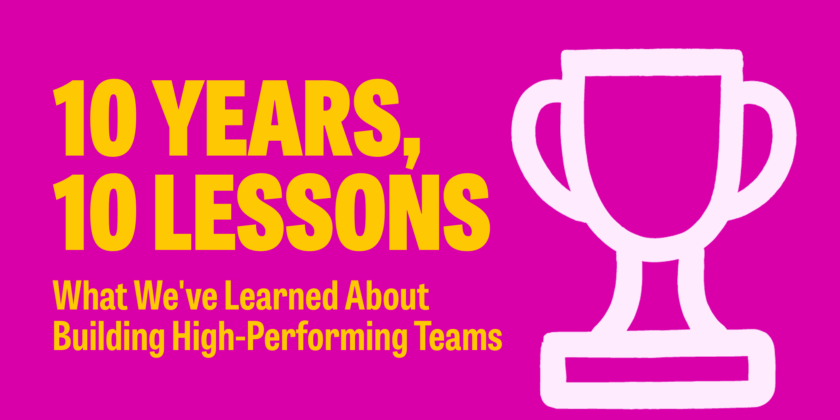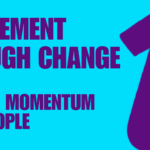Over the past decade, Let’s Talk Talent has partnered with hundreds of organisations across the globe, from ambitious start-ups to established enterprises, helping them transform their teams from functional groups into high-performing powerhouses. Through countless workshops, coaching sessions, and strategic interventions, we’ve gathered invaluable insights about what truly drives team excellence in today’s rapidly evolving workplace.
Each lesson we’ve learnt has been hard-earned, tested in the real world, and refined through direct application with our clients. These aren’t theoretical frameworks plucked from textbooks—they’re practical, proven approaches that address the genuine challenges facing modern business leaders. Whether you’re leading a team struggling with remote working dynamics or running a company seeking to unlock your people’s collective potential, these ten lessons offer a roadmap for building teams that don’t just perform, but excel consistently over time.
Lesson 1: Psychological Safety Isn’t Optional—It’s Foundational
The most transformative discovery in our decade of team development work has been the critical importance of psychological safety. Teams that feel safe to voice concerns, admit mistakes, and challenge ideas consistently outperform those operating in fear-based cultures.
We’ve witnessed this firsthand with a non for profit client who engaged Let’s Talk Talent to conduct a comprehensive, independent culture audit for a specific team. The goal was to identify cultural concerns, pinpoint risks and strengths, and realign the team with the broader organisational values. Through this approach, we sought to establish a cohesive environment that could sustain future success and high performance.
Actionable applications:
- Create formal channels for anonymous feedback and concerns
- Train leaders to respond to challenges with curiosity rather than defensiveness
- Look at structures and define to create opportunities to enhance collaboration
Lesson 2: Clarity Beats Complexity Every Time
High-performing teams share one common trait: exceptional clarity about their purpose, goals, and individual contributions. We’ve learnt that complexity is often mistaken for sophistication, when in reality, the most effective teams operate with elegant simplicity.
Our work with a tech scale-up demonstrated this perfectly. By distilling their 47-point strategy into five clear priorities and defining each team member’s specific role in achieving them, they reduced project delivery times by 35% and increased satisfaction scores by 28 points.
Our team performance frameworks focus heavily on this principle of cutting through complexity to find clarity.
Actionable applications:
- Develop a one-page team charter that everyone can recite
- Replace lengthy job descriptions with clear outcome expectations
- Use visual dashboards to track progress against simple, measurable goals
- Conduct monthly “clarity checks” to ensure alignment remains strong
Lesson 3: Diversity of Thought Trumps Diversity of Background
While demographic diversity matters enormously, we’ve discovered that cognitive diversity—different thinking styles, problem-solving approaches, and perspectives—has the most immediate impact on team performance. The highest-performing teams we’ve worked with actively seek and leverage different ways of thinking.
Actionable applications:
- Map team members’ thinking preferences using tools like Belbin or Strengthsfinder
- Deliberately assign problem-solving tasks to mixed cognitive style groups
- Rotate meeting facilitation to expose different approaches
Lesson 4: Feedback Frequency Matters More Than Feedback Quality
Contrary to popular belief, we’ve found that frequent, informal feedback significantly outperforms infrequent, formal reviews. Teams that engage in daily micro-feedback cycles adapt faster, learn quicker, and perform better than those relying solely on quarterly or annual reviews.
This approach forms a core part of our coaching and assessment methodology, where we help teams develop these continuous feedback habits.
Actionable applications:
- Implement daily 5-minute check-ins focused on obstacles and support needed
- Train team members in real-time feedback techniques
- Use digital tools for continuous peer feedback
- Replace annual reviews with monthly progress conversations
Lesson 5: Autonomy and Accountability Must Be Perfectly Balanced
High-performing teams exist in the sweet spot between complete autonomy and rigid control. We’ve learnt that teams need clear boundaries within which they have complete freedom to operate. Too little autonomy breeds resentment; too much creates chaos.
One technology saw productivity increase by 22% when they gave teams complete autonomy over how they achieved clearly defined quality and output targets, whilst maintaining strict accountability for results.
Actionable applications:
- Define non-negotiable outcomes but leave methods completely flexible
- Establish clear escalation criteria for when team decisions need approval
- Create team-owned performance metrics and review processes
- Implement peer accountability systems rather than top-down monitoring
Lesson 6: Conflict Is a Feature, Not a Bug
The best teams we’ve worked with don’t avoid conflict—they channel it productively. We’ve discovered that teams without conflict are typically teams without passion, innovation, or breakthrough thinking. The key is transforming destructive personal conflict into constructive task-focused disagreement.
Actionable applications:
- Train teams in structured debate techniques
- Separate idea evaluation from idea generation in meetings
- Establish ground rules for healthy disagreement
- Create regular forums for exploring different viewpoints on key decisions
Lesson 7: Energy Management Outperforms Time Management
While most organisations focus obsessively on time management, we’ve learnt that energy management is far more predictive of team performance. High-performing teams understand their collective energy patterns and design their work accordingly.
Actionable applications:
- Implement energy-giving activities (celebrations, learning, creative work) to balance energy-draining tasks
- Create “energy budgets” for meetings and projects
- Design workspaces and schedules that support sustained high energy
Lesson 8: Shared Experiences Create Shared Excellence
Teams that learn together, fail together, and succeed together develop an almost telepathic level of coordination. We’ve observed that shared experiences—particularly overcoming challenges together—create the foundation for exceptional collective performance.
Actionable applications:
- Design team challenges that require collaboration to succeed
- Create shared learning experiences through group training or problem-solving
- Celebrate collective wins more than individual achievements
- Use team retrospectives to build shared understanding of successes and failures
Lesson 9: Purpose Must Be Personal and Collective
While organisational purpose is important, we’ve discovered that high-performing teams develop their own sense of collective purpose that connects individual motivations to team goals. This dual-layer purpose creates extraordinary commitment and resilience.
Actionable applications:
- Facilitate sessions where team members share personal motivations and find connections
- Develop team-specific purpose statements that link to organisational goals
- Regularly revisit and refresh team purpose as membership and context evolve
- Use purpose as a decision-making filter for priorities and resource allocation
Lesson 10: Measurement Drives Behaviour, But Only the Right Measurement
Our final lesson centres on the critical importance of measuring what truly matters. Teams that focus on the right metrics—particularly leading indicators rather than lagging results—consistently outperform those tracking vanity metrics or outdated performance measures.
Actionable applications:
- Identify the three metrics that best predict your team’s success
- Balance quantitative measures with qualitative indicators
- Ensure every team member understands how their actions influence key metrics
- Review and refresh measurement systems quarterly to maintain relevance
Building Teams for the Future
As we look ahead, the landscape of team performance continues to evolve. Remote and hybrid working models, artificial intelligence integration, and changing expectations create new challenges for team leaders. However, our fundamental lessons remain relevant because they address the human elements of performance that transcend technological and structural changes.
The teams that will thrive in the coming decade will be those that master these timeless principles whilst remaining agile enough to adapt their application. They’ll be psychologically safe enough to embrace AI assistance, clear enough to navigate complexity, and purposeful enough to maintain human connection in an increasingly digital world.
Our approach continues to evolve as we learn from each client engagement, but these ten lessons form the bedrock of everything we do. They represent not just what we’ve learnt about building high-performing teams, but what we’ve proven works in the real world of modern organisations.
The future belongs to teams that can combine human excellence with technological capability, and these lessons provide the foundation for achieving that balance.
Work with Let’s Talk Talent
Ready to transform your teams from functional to phenomenal? Our team performance specialists have spent a decade refining these approaches with organisations just like yours. Whether you’re looking to improve existing team dynamics, build new high-performing teams, or scale excellence across your entire organisation, we can help you apply these proven lessons to your unique context.
Through our comprehensive coaching and assessment services, we’ll work with you to diagnose your current team performance, identify the biggest opportunities for improvement, and implement sustainable changes that deliver measurable results.
Don’t wait for transformation to happen by chance. Contact Let’s Talk Talent today and start building the high-performing teams your organisation deserves.



